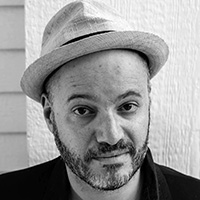“Excuse me for not dying.” Those words were said by Joshu Sasaki Roshi, who ordained Leonard Cohen as a Zen monk in 1996. Roshi, who recently passed on at 107, was in his late 90s when he said it. At recent performances, Cohen has said that he now feels that way himself. His 13th studio album, Popular Problems, was released this week, a couple of days after his 80th birthday. As a preview, Sony unveiled “Almost Like the Blues,” which went viral on YouTube. It is a new classic, commenting on war and murder, life and death, heaven and hell, turning mordant and ironic with each impeccably sculpted turn of phrase, hauntingly intoned with a Latin tinge. “Dress Rehearsal Rag,” one of Cohen’s earliest songs—and the one that resonated with Judy Collins, who introduced him to John Hammond, Columbia Records, and all that followed—described plans for a suicide that never happened. Now Cohen knows that, no matter how much he disciplines his mind and body, he will eventually have to make preparations for the inevitable, even if he lives as long as Roshi. But, in this new song, which also recently appeared as a poem in The New Yorker, death is not just an actuarial inevitability, it is a poetic theme to be explored, played with, maybe even taunted:
I have to die a littleBetween each murderous thoughtAnd when I’m finished thinkingI have to die a lot
This is dark Jewish humor at its most arch: being a little dead “a lot” (rhyming with “thought”) is like being a little bit pregnant. (And his parents can’t even agree if Cohen, who observes the Sabbath, is chosen or not.) And yet he’s serious—dead serious, as a near-80-year-old man contemplating murder, knowing his body is losing capacity all along the way. Being dead “a lot” is an existential proposition, especially for an octogenarian who has been standing down death since he wrote his earliest poems more than 50 years ago. But the absurdity doesn’t end there:
There’s torture and there’s killingThere’s all my bad reviewsThe war, the children missingLord, it’s almost like the blues
Cohen should really be past worrying about bad reviews, although judgment from the Almighty might be on his mind, too. But this is also a parody of narcissism, just a little detour to eternity. The anaphora is the blues. All of human suffering—the personal, the political, the stories of the Gypsies and the Jews—doesn’t get as deep as the blues. Indeed, the song itself is a blues, and Cohen softly growls like he’s been living them for a very, very long time. When he stopped smoking, he thought his voice might get clearer. Instead it got deeper, and on Popular Problems, it gets deeper in many ways. (Cohen, who celebrated his 80th birthday on September 21, planned to reward himself by taking it up again. He said he had been thinking about it for 30 years.)
It took Cohen years to feel that he had the right to sing the blues. When he emerged from the Zen monastery on Mount Baldy, his enlightenment was followed with an all too worldly disaster. He had been swindled out of his life savings—around $8 million—by his former manager and lover Kelley Lynch. He was forced to go out on the road, and, a few remakes of “Hallelujah” later (including on American Idol), became the megastar he had never been before. His previous tour in 1993 had lost money. But just when he was broke, Cohen became a Canadian Idol. When he went to London, he didn’t play Albert Hall, he played the 02 Arena (where Michael Jackson was planning his comeback), and filled it for multiple nights. Cohen made back the money he lost and kept going. (Lynch did jail time and is still in hock.) He was on a roll. And the songwriting inspiration came back, too. If anyone pitched this as a screenplay, no one would have bought it.
And yet the blues came after him anyway. Sure, he’s rich and famous in a new and completely unprecedented way, but that doesn’t mean it has ever been easy to be Leonard Norman Cohen. When Judy Collins first tried to bring him onstage at Town Hall in 1967 before the release of his extraordinary debut Songs of Leonard Cohen, he suffered such tsuris, he choked in the middle of “Suzanne” and bolted. When Collins coaxed him back, the folk audience loved him even more. This guy was authentic. Cohen learned to be a consummate professional since then, but he was a brooding and angsty young man before he reached a late style where all that darkness was distilled and decanted in a voice that almost sounds like it’s coming from the other side. “Slow,” the album’s opener and early and perverse contender for a title, states a preference for a glacial pace. It could be savoring the last drop, the final throes, the movement of poetry and inspiration, and all the portals of enlightenment.
I’m slowing down the tuneI never liked it fastYou want to get there soonI want to get there last
It’s not because I’m oldIt’s not the life I ledI always liked it slowThat’s what my mama said
And why would Leonard Cohen be in a hurry? And why should we be in a rush taking in these nine songs? We need to let them breathe a little. We need to hear the album’s raspy, philosopher king jokes, its profundity, and all of the ingredients that make a great Leonard Cohen album.
The music on eight of these nine tracks was co-written by Patrick Leonard, who also co-wrote music for three songs on Old Ideas, Cohen’s last album. Leonard is best known for writing songs for Madonna, including “Like a Prayer.” Who would have thought? Cohen’s songs are not like prayers but are more like actual prayers, even as they also get down and dirty. This album has sinuous B-3 organ lines and a horn section that chimes in like a hermeneutical Booker T. and the MG’s record. Cohen is that rare Jewish guy to write a song, “Born in Chains,” from the point of view of a slave (Old Ideas had “Show Me the Place,” a song about a slave to love), except that, accompanied by the gospel melisma of his longtime collaborator Sharon Robinson, he sings about being enslaved in Egypt.
Cohen has been writing about war for decades, and, on “Nevermind,” the chaos of the Middle East inspired brooding lyrics, about living undercover, bitter, oppressed, and under the radar (“I was not caught / Though many tried / I live among you / Well disguised”). The song pulses with the beat of continuous war, his stoic and bitter baritone entwined with a woman singing Arabic, providing a voice, he has said, to the oppressed. The funkiest track, “A Street,” starts out with a drinker and smoker who wonders what went wrong with a lover that shared his libations. But the chorus is not about a lost relationship or any other popular problem about a place that is inexorably gone: “the party’s over / but I’ve landed on my feet / I’ll be standing on the corner / where there used to be a street.” The song, which appeared in a dramatically different form as a 2009 New Yorker poem, began as a 9/11 elegy, but that was before Katrina, two wars, back when “Isis” was simply the name of a great Bob Dylan song and an even greater goddess. Cohen is still our elegist for the ages, even when his song spanned several cultural moments. There are more missing streets, missing lovers, and missing friends. We will all be missing one day.
And yet what is bad news in life is good news for a Leonard Cohen album. Popular Problems is, like all of Cohen’s albums, a combination of higher aspirations and exquisite seduction. Taking a cue from Marvell’s “To His Coy Mistress,” at the end of “Slow,” Cohen wishes he could have world enough and time to talk up a lover once more:
I like to take my timeI like to linger as it fliesA weekend on your lipsA lifetime in your eyes
Time’s winged chariot hasn’t caught up to Cohen yet; he’s already halfway through his next album, contemplating yet another tour. When Lou Reed inducted Cohen into the Rock and Roll Hall of Fame in 2008, Reed said, with uncharacteristic graciousness, “We are so lucky to be alive at the same time as Leonard Cohen.” Reed is now no longer among us, but we are still lucky to be alive in Cohen’s time. He once said, “If I knew where the good songs came from, I’d go there more often.” And so, on Popular Problems, Leonard Cohen ventured back to that mysterious place again. In a word, Hallelujah.
David Yaffe is a professor of humanities at Syracuse University and the author of Fascinating Rhythm: Reading Jazz in American Writing and Bob Dylan: Like a Complete Unknown. He is working on a book about Joni Mitchell.






